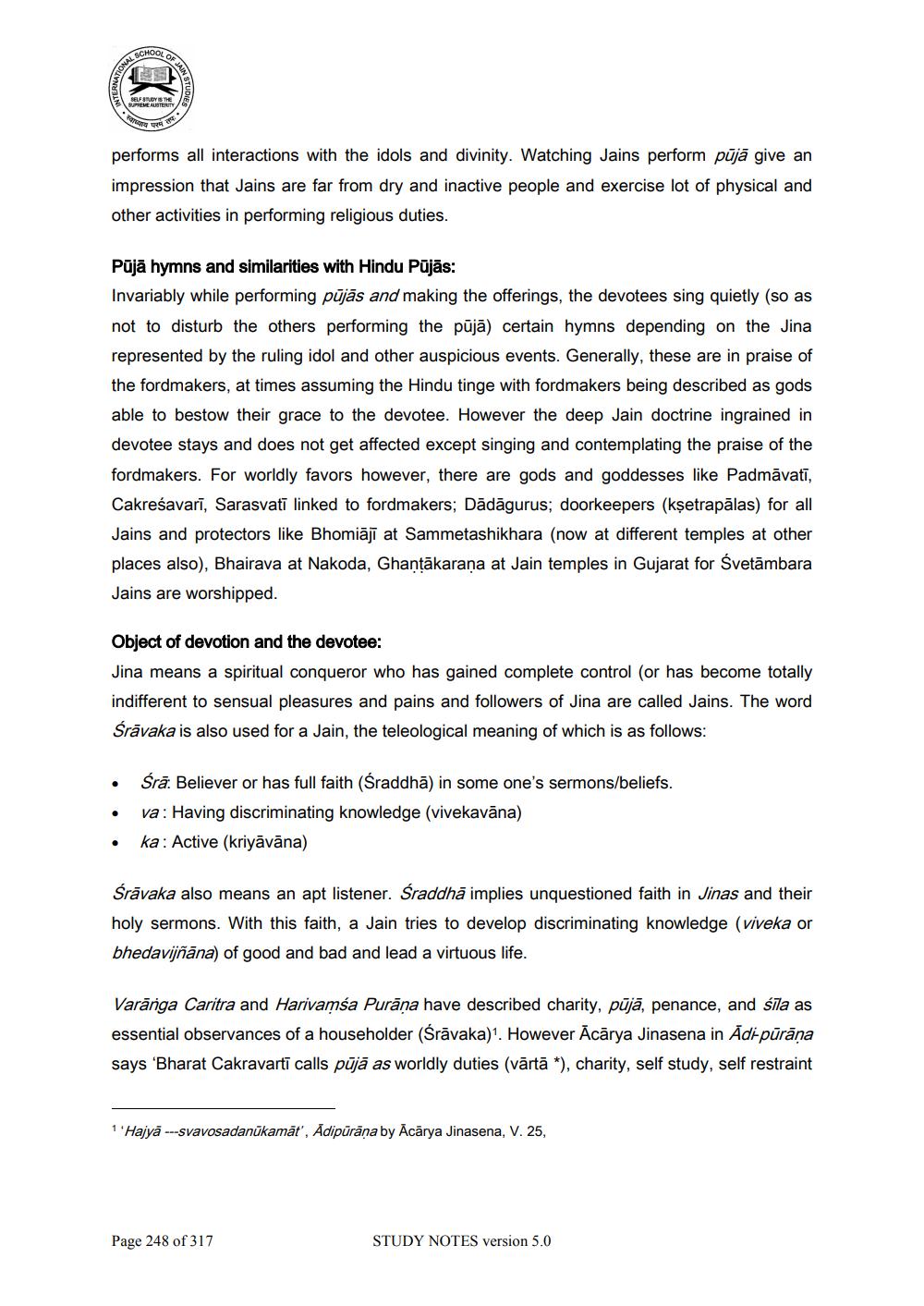________________
performs all interactions with the idols and divinity. Watching Jains perform pūjā give an impression that Jains are far from dry and inactive people and exercise lot of physical and other activities in performing religious duties.
Pajā hymns and similarities with Hindu Pājās: Invariably while performing pūjās and making the offerings, the devotees sing quietly (so as not to disturb the others performing the pūjā) certain hymns depending on the Jina represented by the ruling idol and other auspicious events. Generally, these are in praise of the fordmakers, at times assuming the Hindu tinge with fordmakers being described as gods able to bestow their grace to the devotee. However the deep Jain doctrine ingrained in devotee stays and does not get affected except singing and contemplating the praise of the fordmakers. For worldly favors however, there are gods and goddesses like Padmāvatī, Cakreśavarī, Sarasvati linked to fordmakers; Dādāgurus; doorkeepers (kşetrapālas) for all Jains and protectors like Bhomiāji at Sammetashikhara (now at different temples at other places also), Bhairava at Nakoda, Ghantākarana at Jain temples in Gujarat for Śvetāmbara Jains are worshipped.
Object of devotion and the devotee: Jina means a spiritual conqueror who has gained complete control (or has become totally indifferent to sensual pleasures and pains and followers of Jina are called Jains. The word Śrāvaka is also used for a Jain, the teleological meaning of which is as follows:
• •
Śrā. Believer or has full faith (Sraddhā) in some one's sermons/beliefs. va: Having discriminating knowledge (vivekavāna) ka: Active (kriyāvāna)
Śrāvaka also means an apt listener. Sraddhā implies unquestioned faith in Jinas and their holy sermons. With this faith, a Jain tries to develop discriminating knowledge (viveka or bhedavijñāna) of good and bad and lead a virtuous life.
Varānga Caritra and Harivamsa Purāṇa have described charity, pūjā, penance, and śīla as essential observances of a householder (Śrāvaka)'. However Ācārya Jinasena in Adi-purana says 'Bharat Cakravartī calls pūjā as worldly duties (vārtā *), charity, self study, self restraint
1. Hajya ---svavosadanūkamāt', Adipūrāna by Ācārya Jinasena, V. 25,
Page 248 of 317
STUDY NOTES version 5.0




